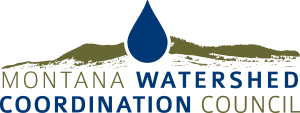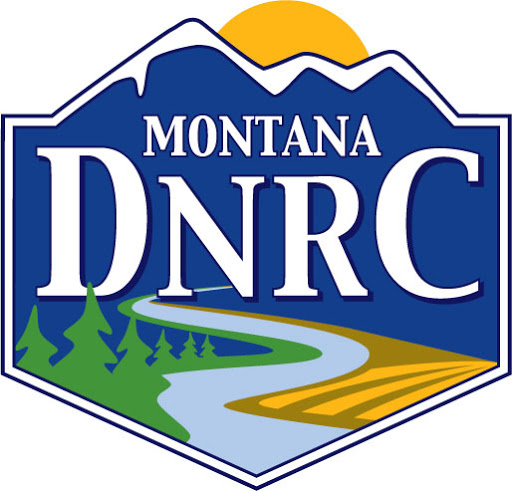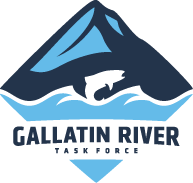Job Opportunity
The Blackfoot Challenge seeks a dynamic, Science Director to oversee research, monitoring, and conservation planning in the Blackfoot watershed and High Divide region located in Western
Montana. This position of senior leadership will help guide science delivery within a community-based and collaborative conservation process under the auspices of the Blackfoot Challenge.
The ideal candidate will have a strong quantitative background in conservation biology, applied ecology, biology, watershed management, wildlife biology, or similar natural resource discipline. Additionally, the candidate must have well developed GIS and cartographic skills sets for spatial analysis, database management, and science communication.
The Science Director position is a result of a partnership among the Blackfoot Challenge (BC), the Intermountain West Joint Venture (IWJV), the University of Montana’s College of Forestry and Conservation (UM-CFC), and the USDA-Natural Resources Conservation Service (NRCS). This position will improve science delivery in the Blackfoot watershed as well as Southwest Montana’s High Divide and possibly additional areas where IWJV Water 4 Programs are focused.
Job Opportunity
This position is responsible for the coordination of DNRC’s obligations associated with the implementation of Montana’s Water Compacts under MCA 85-20. The position has the authority and discretion to make decisions, in coordination with their supervisor, on how to carry out policy, rules, and laws pertinent to the CIP. This position conducts research, analysis using geographic information systems (GIS), and develops recommendations regarding changes to improve CIP’s services. Common duties for this position include providing technical guidance and training for DNRC and tribal personnel on DNRC’s water rights database, GIS applications, and creating reports for processing water reservation applications.
Job Opportunity
Come work for the state of Montana and coordinate the Fire Adapted Montana Learning Network: https://fireadaptedmontana.org/.
The Fire Adapted Communities Specialist focuses on community preparedness and wildfire adaptation to reduce the risk of catastrophic wildfire impacts to communities across the state of Montana. This work is primarily accomplished via the Specialist’s engagement as the Coordinator of the Fire Adapted Montana Learning Network (FAMLN). The position serves both as an internal resource to DNRC personnel as well as to key external partners in local, state, tribal, and federal government. The individual must perform a variety of other professional and administrative tasks in support of the Forestry Division as assigned by the supervisor. This may include representing the agency at meetings and conferences, managing special projects, and attending training and/or continuing education as required.
Location is flexible within Montana.
Job Opportunity
The Gallatin River Task Force is seeking a dynamic and experienced Communications & Marketing Manager to join their team and help elevate their presence. As Communications & Marketing Manager, you will play a crucial role in developing and implementing effective marketing and communication strategies to enhance the organization’s image, promote a positive public perception, advance education, drive event attendance and fundraising. You will be responsible for ideating and crafting compelling marketing campaigns including developing creative content, and managing media and public relations.
Job Opportunity
The Montana Abandoned Mine Lands (AML) Program is responsible for the monitoring and reclamation of Montana’s abandoned coal mines, hard rock mines, and coal seam fires. The Environmental Project Officers are responsible for providing project management for the investigation, evaluation, and eventual abandoned mine land cleanup. AML staff administer abandoned mine reclamation projects that are funded by federal grants. This position ensures protection of Montana’s environment through application and knowledge of federal and state environmental laws and regulations. The Environmental Project Officers must plan, coordinate, and direct interdisciplinary technical studies as well as evaluate project alternatives relative to applicable environmental laws. AML staff also manage projects from start to completion while ensuring state and federal compliance. This position reviews all project and technical documents to ensure regulatory compliance and will aide in the selection of technically appropriate, cost-effective remedies to preserve and protect the State of Montana’s interests and obligations at a particular site. Project management requires this position to act as a liaison to the public and coordinate with various stakeholder groups.
The position includes a career ladder for professional development and pay progression. This position may be eligible for occasional telework. This position may be eligible for a statutory base salary annual increase of $3,120 effective July 1, 2024.
Job Opportunity
This position will primarily lead the Blacktail Creek Project as part of the Butte Priority Soils Federal Superfund Site located in Butte, MT. Blacktail Creek is a Federal Superfund Site addressing contaminated tailings, sediment and floodplain contamination. This position will require strong relational and communication skills as part of a cross-program collaboration effort, and act as a liaison to the public and coordinate with internal and external stakeholders. The Environmental Project Officer provides agency assistance in project management for the investigation, evaluation, and cleanup of uncontrolled hazardous substance sites in Montana under the appropriate regulatory authority. This position ensures protection of Montana’s environment through application and knowledge of environmental laws and regulations. The Environmental Project Officer must plan, coordinate, and direct interdisciplinary technical studies as well as evaluate project alternatives relative to applicable environmental laws. This position reviews all project and technical documents to ensure regulatory compliance and will aide in the selection of technically appropriate, cost-effective remedies to preserve and protect the State of Montana’s interests and obligations at a particular site. Other State lead Federal Superfund projects may be assigned to the project manager over time.
The position includes a career ladder for professional development and pay progression. This position may be eligible for occasional telework. This position may be eligible for a statutory base salary annual increase of $3,120 effective July 1, 2024.
Job Opportunity
The Madison River Foundation (MRF) is seeking an Executive Director, who will be responsible for overseeing all aspects of the organization ensuring that they are operating effectively to meet organizational goals. As the face of the MRF, the Executive Director works closely with the Board of Directors and Partners. The Executive Director will ensure that staff members are aligned with the organization’s mission and vision and that they are working together to successfully achieve strategic objectives. The MRF has a culture that places a high priority on positive leadership, communication, recognition and collaboration.
Position is open until filled.
Job Opportunity
The K-12 Coordinated Conservation Learning Program (CCLP) is an initiative to coordinate with local partners and educators to develop and deliver intentionally consistent, science-driven, and stewardship-oriented learning opportunities about water, wildlife, lands, and other natural resources to K-12 Bitterroot students, in both classroom and outdoor settings. Through a coordinated and joint effort, the CCLP aspires to provide all K-12 students in the Bitterroot transformative, educational experiences that foster a deep appreciation for local nature, instills an understanding of natural resources and associated sciences, and inspires a lifelong commitment to conservation. The program aims to cultivate a community of environmentally conscious and empowered individuals who actively contribute to the stewardship of the land, water, and wildlife in the Bitterroot Valley.
This position is contract with varying hours needed and will work with Bitterroot Water Partnership and the Teller Wildlife Refuge.
Job Opportunity
The Project Manager will work to develop and manage collaborative stream restoration projects, advancing progress towards the restoration and protection of groundwater and surface water resources in the Lower Gallatin Watershed for the Gallatin Watershed Council.
Job Opportunity
The Department of Environmental Quality is currently looking for a Water Quality Permitting Scientist with a specialization in stormwater to join their team in the Water Protection Bureau of the Water Quality Division.
Water Quality Permitting Scientists are responsible for performing scientific and technical analyses, calculations, assessments, and determinations essential to the implementation of water quality programs in the State of Montana. This Stormwater Specialist Water Quality Permitting Scientist will be responsible for administering the three General Permits that regulate stormwater in addition to individual permit writing duties.
When a municipality, industry, or other entity wishes to discharge water to a surface water of the state, that entity must first obtain a permit from DEQ. Montana Pollutant Discharge Elimination System (MPDES) permits regulate wastewater discharges by limiting the quantities of pollutants to be discharged. The limits and/or requirements in the permit help ensure compliance with Montana’s Water Quality Standards, and State and Federal Regulations, all of which were written to protect public health and the aquatic environment.
There are two types of MPDES permits: Individual and General. DEQ develops the limits and requirements for an Individual Permit based on a facility’s operations, type and amount of discharge, and the nature of the receiving stream, among other factors.
General Permits cover facilities with similar operations and types of discharge, and whose discharges have minimal environmental impact. For example, storm water runoff results from rain and snowmelt events that flow over land or impervious surfaces such as rooftops, paved streets, and parking lots. Storm water runoff carries a variety of pollutants including sediment, oil, fertilizers, pesticides, trash, and animal waste that can negatively impact water quality. DEQ regulates discharges of storm water from municipal separate storm sewer systems (MS4s), construction activities, and industrial operations through three Montana Pollutant Discharge Elimination System (MPDES) General Permits.
The Permit Writers position includes a career ladder for professional development and pay progression. This position may be eligible for occasional telework.







